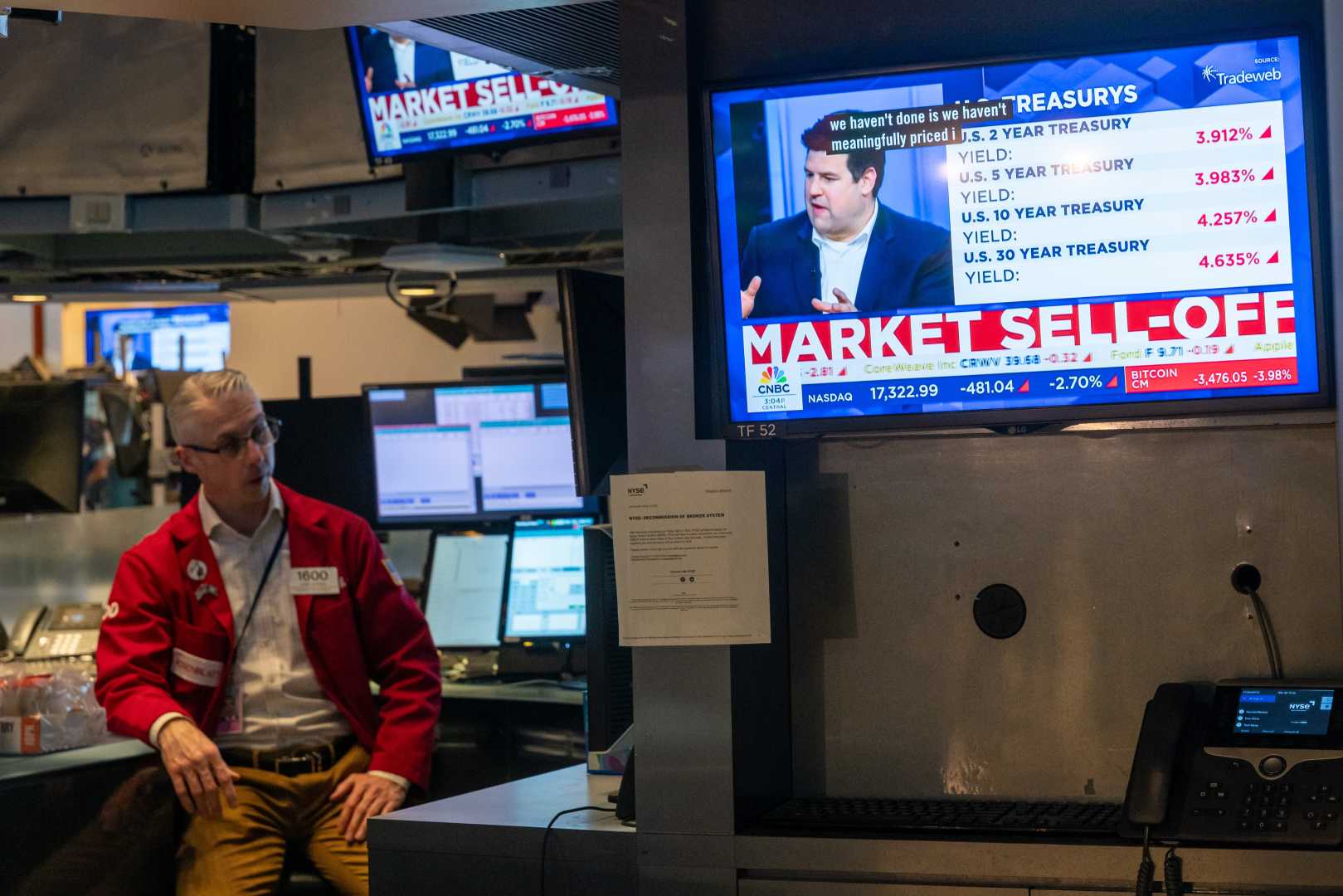Business
Nasdaq Confirms Bear Market as Tariffs Spark Economic Fears

NEW YORK, U.S. — The Nasdaq Composite index officially entered bear market territory Friday, falling more than 20% from its recent high, primarily due to heightened investor fears regarding economic repercussions from new tariffs imposed by President Donald Trump. The tariffs, aimed at imports from over 180 countries, triggered a widespread selloff in equities as investors fled to safety.
On Friday, the index dropped 3.8% after China announced a retaliation on U.S. goods, compounding fears over a potential trade war. The Nasdaq is now down roughly 20% from its December 16, 2024, closing high of 20,173.89, marking a significant decline that confirms a bear market, defined as a drop of at least 20% from its peak.
The S&P 500 Index fell 14.9%, just shy of entering correction territory, while the Dow Jones Industrial Average also faced losses, down 1,679.39 points or 3.98%, marking its worst session since June 2020. The combination of trade tensions and concerns over artificial intelligence (AI) spending had already put these major stock indices under pressure in recent weeks.
Among the largest tech firms, Apple saw a significant decline of 12.5%, highlighting its manufacturing reliance on China, which now faces an aggregate tariff rate of 54%. Other tech giants also suffered notable losses, with Alphabet down 5.3%, Microsoft losing 4.3%, and Meta Platforms dropping 12.6%. Amazon slipped 13.3%, and Tesla plunged 37% amid controversies surrounding CEO Elon Musk’s political engagement and slowing sales.
Cited risks surround the impact of tariffs on overall economic growth, with analysts pointing out that investors are increasingly retreating from riskier assets. ‘This was the worst-case scenario for tariffs and the market was not prepared for it,’ said Mary Ann Bartels, chief investment strategist at Sanctuary Wealth. ‘If the S&P 500 cannot hold above 5,500, we may see a further decline of 5-10%, pointing to a bottom of 5,200-5,400.’
The considerable market declines have also spread across sectors, with multinational companies heavily hit. Major consumer goods firms like Coca-Cola reported a more stable performance, gaining 2.5% amidst the turbulence, contrary to many others suffering from the broad market sell-off.
Trump’s announcement on Wednesday established a baseline tariff of 10% on all imports, which raises questions regarding potential retaliatory tariffs and further economic repercussions. Many investors admitted they were blindsided by the extent of these policies, which significantly exceeded market expectations.
John McKinsey, a financial analyst, noted that ‘Investors are concerned not just about tariffs but also about the collateral damage they cause in terms of global trade relations’. Should the tariffs remain in place, experts predict they could constrain the Federal Reserve’s ability to lower interest rates, further complicating the economic outlook.
The ‘Magnificent Seven‘ stocks, a group that includes the major tech players, have witnessed a dramatic downturn of approximately 27% from their all-time high in December. This decline has heightened investor sentiment, emphasizing a deteriorating market landscape as recession fears mount amid the ongoing trade negotiations and tariff implementations.
As markets continue to react to these developments, the focus remains on how these tariffs will reshape trade relationships moving forward and what adjustments companies will make to navigate this challenging environment.
This report was prepared by Reuters, with reporting by Sukriti Gupta in Bengaluru, and editing by Sriraj Kalluvila.












